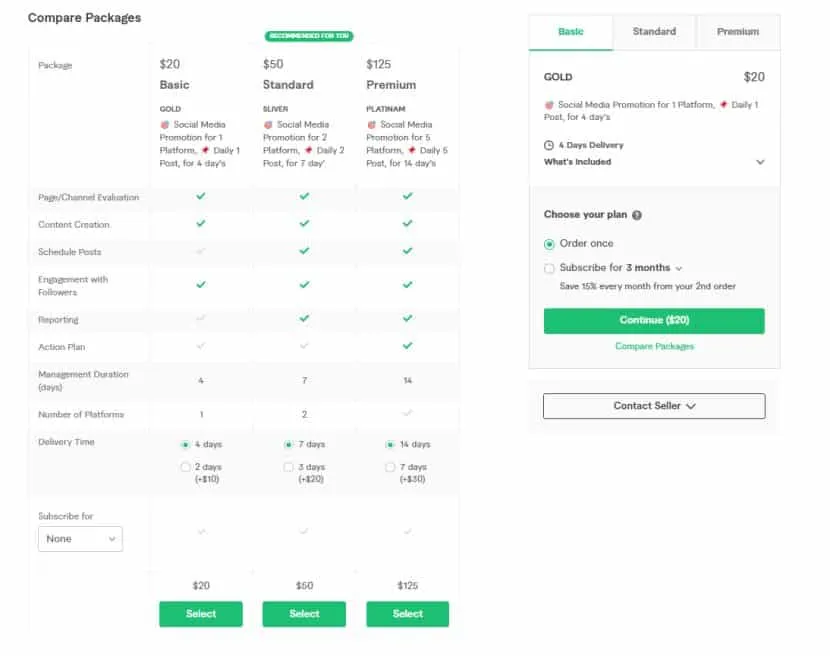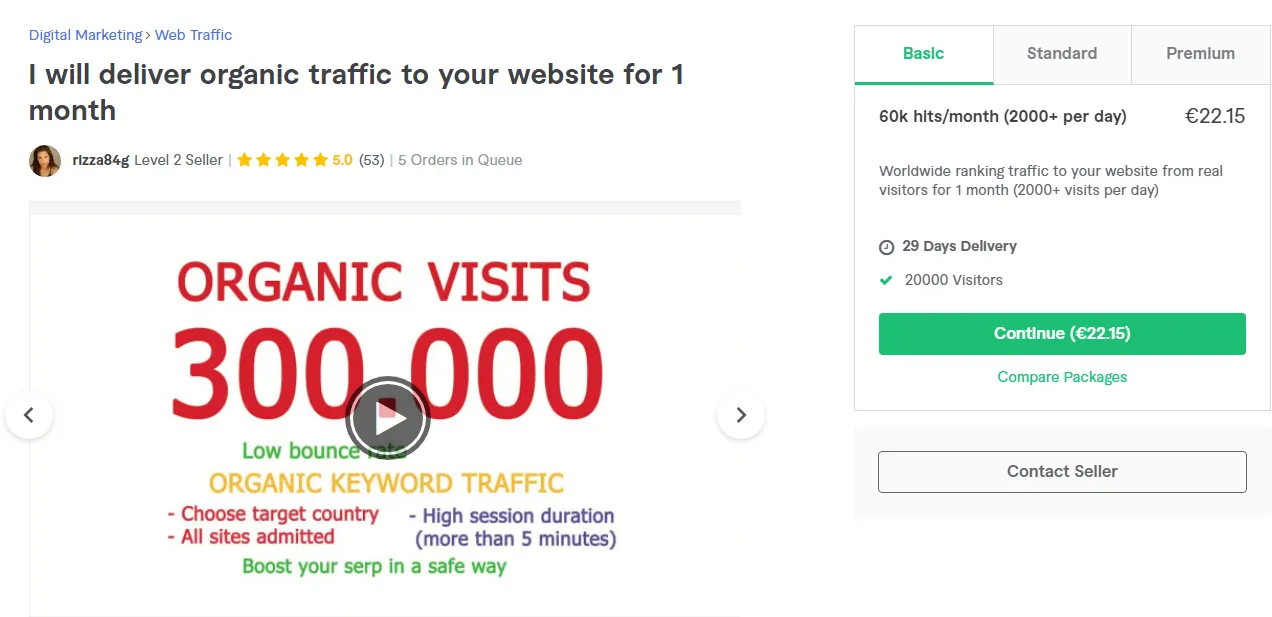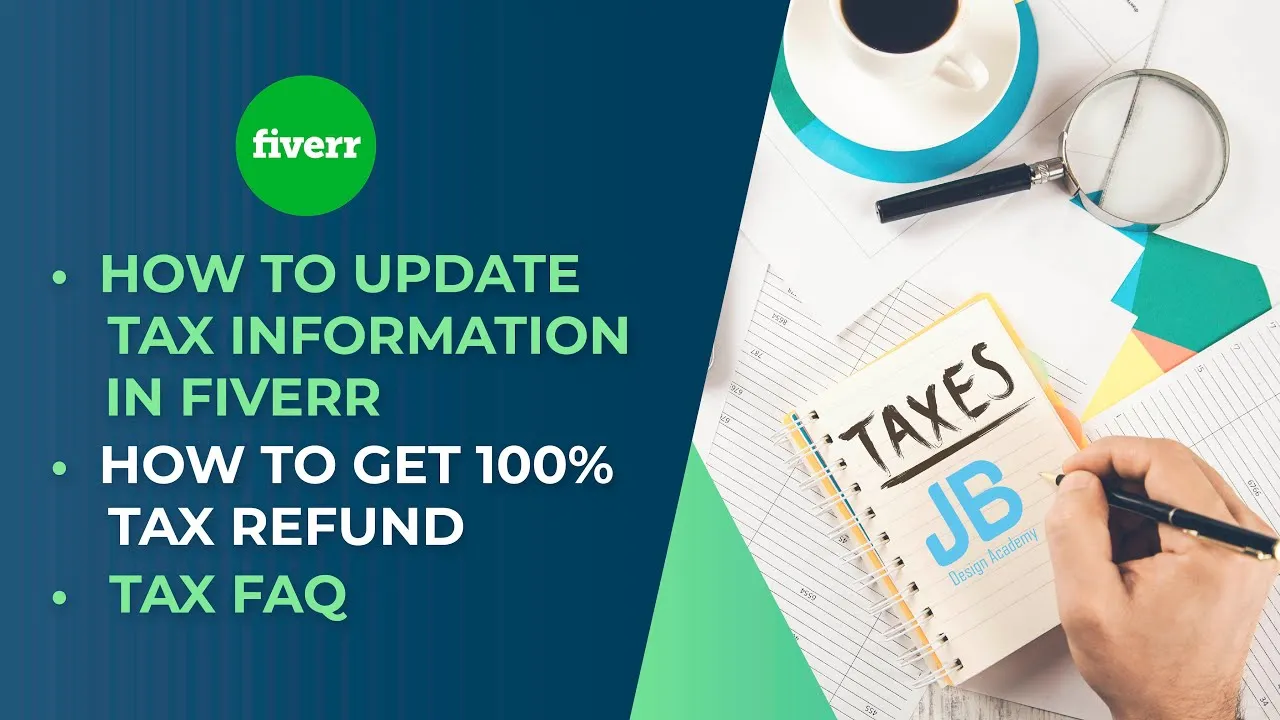Fiverr has transformed the way freelancers and clients connect across various industries. Founded in 2010, this online platform allows professionals to offer their services—often called "gigs"—starting at just $5 (hence the name!). From graphic design and writing to video editing and programming, Fiverr hosts a diverse range of services that cater to everyone, whether you need a quick logo or a detailed business plan.
One of the standout features of Fiverr is its user-friendly interface, making it a breeze for both freelancers and clients. Sellers create profiles that showcase their offerings, skills, and customer reviews, allowing buyers to make informed decisions. With over three million services available on the site, there's likely something for nearly every need. But as service providers start making money from these gigs, understanding how service tax applies becomes crucial.
Understanding Tax Obligations for Freelancers

Once you dip your toes into the world of freelancing on Fiverr, it’s essential to be aware of your tax obligations. Tax laws can be pretty complex and differ by location, but here’s a quick rundown to get you started.
Freelancer Tax Basics:
- Self-Employment Taxes: As a freelancer, you're usually considered self-employed. This means you're responsible for paying self-employment taxes on your earnings, which include Social Security and Medicare taxes.
- Income Tax: Any income earned through Fiverr is subject to income tax. It’s crucial to track your earnings accurately to report them during tax season.
- Sales Tax: Depending on your services and location, you may also need to charge sales tax to your clients. Not all services are taxable, so it’s vital to check your local laws.
To manage your tax obligations effectively, consider the following:
- Keep detailed records of all your transactions, including income, expenses, and any tax collected.
- Use accounting software to streamline your bookkeeping process.
- Consult a tax professional to ensure you’re compliant with tax regulations and maximizing your deductions.
By staying informed and organized, you can navigate the tax landscape of freelancing on Fiverr and focus on growing your business.
Also Read This: How to Use Fiverr to Make Money in Nigeria
3. Tax Categories Relevant to Fiverr Services

Understanding how taxes apply to services sold on Fiverr can be a bit overwhelming, but it’s crucial for both sellers and buyers to be aware of the different tax categories involved. Let's break this down into manageable parts:
- Sales Tax: In many countries and regions, sales tax may apply to services provided. Fiverr itself doesn't collect sales tax on services, but sellers are required to know if local laws require them to add tax to their services. It's a good idea for sellers to familiarize themselves with their local regulations.
- Value Added Tax (VAT): For sellers in the European Union (EU), VAT might apply depending on various factors like the seller's location and the customer’s location. If you're an EU seller, you’ll need to include VAT in your pricing or apply it based on the customer’s country. It's essential to remain compliant.
- Income Tax: This is a separate consideration entirely. As a Fiverr seller, any income earned from your services is generally subject to income tax in your home country. You’ll need to report all earnings from Fiverr when filing your taxes.
- Self-Employment Tax: If you're working as a freelancer, you might also be liable for self-employment taxes. This is particularly important for those in the United States, where additional contributions to Social Security and Medicare could be required.
Being aware of these categories and understanding where you stand in terms of taxation is key to managing your Fiverr earnings effectively.
Also Read This: How Much to Charge for a Freelance Logo
4. How Fiverr Handles Taxes for Sellers

Alright, let’s dive into how Fiverr takes the burden off your shoulders when it comes to handling taxes. Fiverr has put systems in place to help sellers navigate their tax obligations, which means you have more time to focus on your creative work!
Here’s how Fiverr supports sellers regarding tax handling:
- No Withholding for Taxes: Fiverr does not withhold taxes automatically from your earnings. This means it’s up to you to report and pay the necessary taxes on your income. They provide you with all the information you need for your year-end tax reporting.
- Tax Information Section: On your Fiverr account, there is a Tax Information section where you can fill out your tax details. This information helps you and Fiverr keep track of what you need to report when tax season rolls around.
- Year-End Income Statement: Fiverr provides a year-end income statement that summarizes your earnings. This is super handy for tax reporting, as it gives you a clear overview of what you’ve earned during the year.
- Access to Resources: Fiverr also offers resources and support through their help center, making it easier to understand your responsibilities. They don’t provide tax advice, but they point you to the right information.
In conclusion, while Fiverr simplifies some aspects of tax handling, it's important for sellers to stay informed and proactive about their individual tax situations! Keeping organized and asking questions will go a long way in making tax season less stressful.
Also Read This: How to Find My Gig on Fiverr
Tax Reporting Requirements for Fiverr Earnings
When you earn money on Fiverr, it's essential to understand the tax reporting requirements that come with it. Just like any other source of income, your earnings from freelance services are subject to taxation. Whether you are a hobbyist or a full-time freelancer, you will need to keep track of your income for tax purposes.
Here are the key tax reporting requirements you should be aware of:
- Self-Employment Income: Fiverr earnings are considered self-employment income. This means you will report them on Schedule C of your IRS tax return.
- Income Threshold: If you earn more than $400 from Fiverr in a year, you're required to file a tax return and report this income.
- Form 1099-K: Depending on your earnings, Fiverr may issue you a Form 1099-K if you hit certain thresholds, which you must keep for your records.
- Estimated Taxes: Freelancers are often required to pay estimated taxes quarterly. So, set aside a portion of your earnings to avoid a tax bill at the end of the year.
It’s crucial to maintain accurate records of all transactions, as this will simplify your tax filing process. Also, consider consulting a tax professional for specific guidance tailored to your situation.
Also Read This: How to Become a Freelance Private Investigator
Ways to Track Your Income and Expenses
Keeping track of your income and expenses on Fiverr is not just good practice; it's vital for maintaining a clear view of your financial health and fulfilling your tax obligations. Here are some effective ways to monitor your Fiverr earnings:
- Use Accounting Software: Tools like QuickBooks or FreshBooks can simplify tracking your income and expenses. They often come with features tailored for freelancers.
- Spreadsheets: If you're more hands-on, consider using Excel or Google Sheets. You can easily create tables to list your earnings, expenses, and even categorize them for better clarity.
- Manual Logs: If you prefer the old-school way, jotting down every transaction in a dedicated notebook helps too. Just ensure you are diligent about maintaining it.
Regardless of the method you choose, make sure to record income as soon as you receive it, and keep receipts for any business-related expenses. Remember, the clearer your record-keeping, the smoother your tax filing experience will be!
Also Read This: How to Add Your Gig Images to Fiverr
Tips for Managing Taxes on Freelance Income
Managing taxes as a freelancer can feel overwhelming, but with some organization and the right strategies, you can navigate this process smoothly. Here are some practical tips to ensure you're on top of your freelance income tax responsibilities:
- Keep Detailed Records: Start by maintaining thorough records of your earnings and expenses. Use accounting software or a simple spreadsheet to log each transaction. This practice is crucial for tracking your income and claiming deductions.
- Separate Business and Personal Finances: Open a dedicated bank account for your freelance income. Mixing personal and business finances can lead to confusion when it's time to file your taxes.
- Estimate Quarterly Taxes: Freelancers usually have to pay estimated taxes quarterly. Calculate your estimated taxes based on your expected annual income, and set aside money regularly to avoid a surprise tax bill.
- Keep Receipts: Save all your receipts related to business expenses. Whether it's software subscriptions, office supplies, or promotional costs, these can often be deducted from your taxable income.
- Consult a Tax Professional: If you're unsure about your tax obligations, it can be helpful to speak with an accountant or tax professional. They can provide advice tailored to your specific situation and help you find ways to minimize your tax liability.
- Stay Updated on Tax Laws: Tax laws can change frequently. Keep yourself informed about any updates that might affect your business by following reliable tax news or websites.
By implementing these strategies, managing your freelance taxes can become a much less daunting task, allowing you to focus on what you love—your work!
Also Read This: How to Search for Jobs on Fiverr
Conclusion: Staying Compliant with Tax Regulations
In conclusion, staying compliant with tax regulations is essential for freelancers using platforms like Fiverr. Understanding your tax obligations not only protects you from potential penalties but also positions you for future growth. Here's a quick recap of key points to remember:
| Key Point | Details |
|---|---|
| Know Your Tax Obligations | Understand the local, state, and federal tax regulations that apply to your earnings. |
| Set Aside Funds for Taxes | Regularly set aside a portion of your earnings to cover your tax liabilities. |
| Utilize Deductions | Track all business-related expenses to claim deductions, which can reduce your taxable income. |
| Stay Organized | Keep your financial records organized to simplify the filing process. |
| Seek Professional Guidance | If in doubt, consult a tax professional for tailored advice. |
By staying informed and proactive about your tax responsibilities, you can maintain compliance and enjoy the freedom of being a freelancer on Fiverr. Remember, a little preparation goes a long way when it comes to managing your finances!
9. Additional Resources and Support
When navigating the complexities of service tax on platforms like Fiverr, having access to additional resources and support is invaluable. These resources can help clarify tax obligations, streamline the process, and ensure compliance with relevant laws. Here’s a compilation of useful tools and support channels:
- Fiverr Help Center: The official Fiverr Help Center provides a wealth of information, including articles related to taxation. It answers common questions and offers guidance specifically for freelancers.
- IRS Resources: For U.S.-based freelancers, the IRS website offers essential guidelines on self-employment taxes and reporting income from freelance work.
- Local Tax Authorities: It’s crucial to check with your local tax authority for region-specific guidelines and requirements. Many of them provide resources and support for freelancers.
- Consultancy Services: Hiring a tax consultant or accountant who specializes in freelance or digital services can help you manage your tax obligations more efficiently.
- Online Tax Software: Tools like TurboTax or H&R Block can simplify the tax process by providing step-by-step guidance for reporting income earned on Fiverr.
In addition to these resources, consider joining freelance communities and forums where you can share experiences and learn from fellow freelancers about how they manage their service taxes. This collaborative approach can offer insights and practical advice for staying compliant while maximizing your earnings.
In summary, leveraging these additional resources and support options will not only enhance your understanding of how your service is taxed on Fiverr but will also ensure you are well-equipped to navigate your tax obligations effectively.



